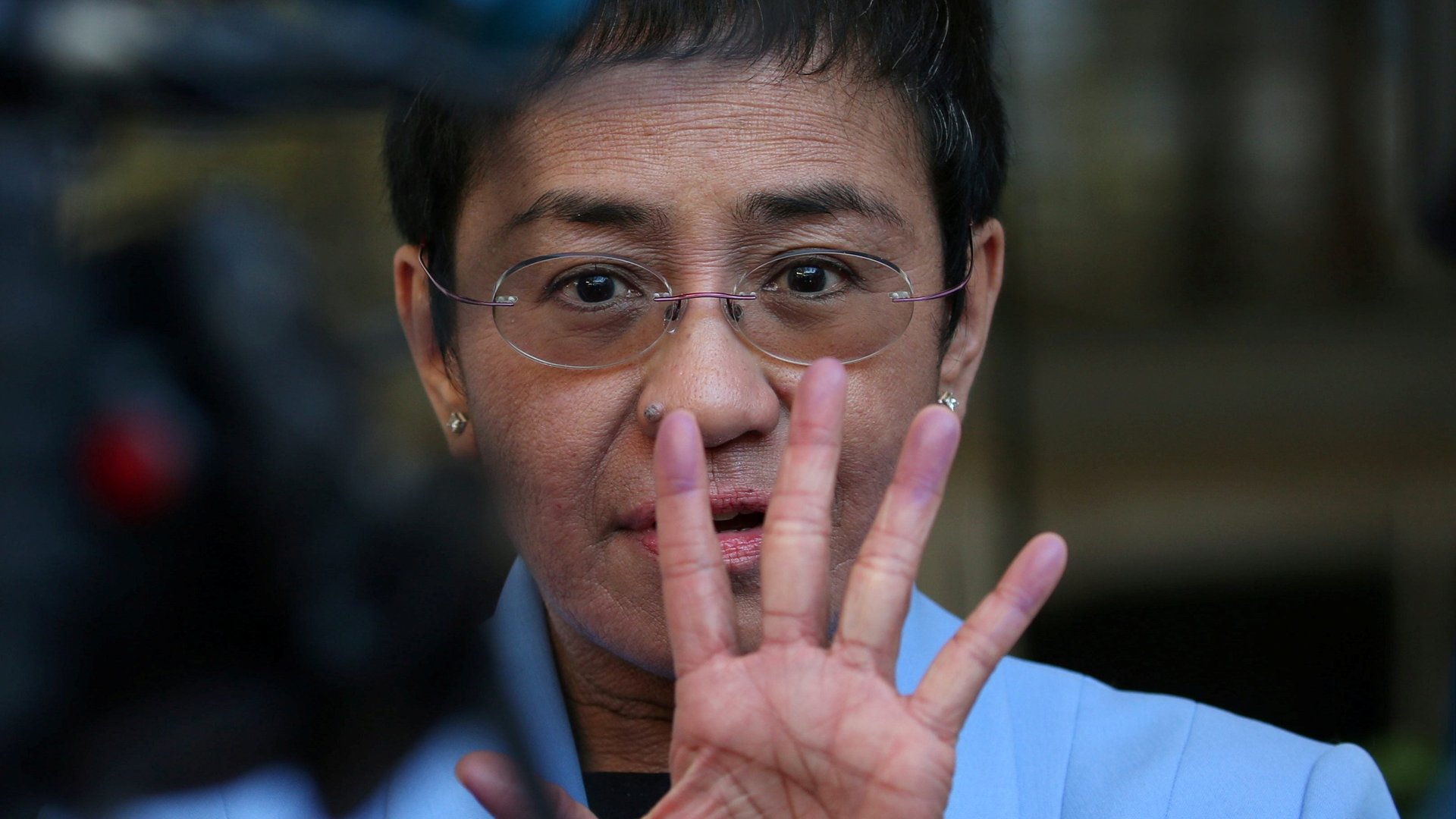Even after winning the Nobel Peace Prize, internet trolls still hound Maria Ressa
Minutes after her Nobel prize was announced, Maria Ressa logged on to Facebook to speak about Rappler. The online Filipino media outlet she co-founded has been the most ardent chronicler of the litany of human rights violations, corruption, and misinformation campaigns, corruption perpetuated by Philippine president Rodrigo Duterte and his cronies.


Minutes after her Nobel prize was announced, Maria Ressa logged on to Facebook to speak about Rappler. The online Filipino media outlet she co-founded has been the most ardent chronicler of the litany of human rights violations, corruption, and misinformation campaigns, corruption perpetuated by Philippine president Rodrigo Duterte and his cronies.
“We are fighting for facts,” said Ressa, explaining how the Nobel fuels her sense of mission. “When the world’s largest distributor of news prioritizes the spread of lies laced with anger and hate and spreads it faster and further than facts, journalism becomes activism.” The 58-year old investigative reporter and Russian journalist Dmitry Muratov bested over 300 nominees, including scientists who published breakthrough research about the current Covid-19 pandemic, for the prestigious award that comes with a cash prize of $1.14 million.
The Nobel committee’s recognition of a “fearless defender of freedom of expression” serves as vindication for Ressa who has weathered a barrage of attacks designed by strategists in the Duterte administration. Warrants for her arrest have been issued by the Philippine government 10 times, with officials trying to pin her down on charges of “cyber libel” and tax evasion. On social media, which is the main communication artery for many Filipinos, vociferous troll armies constantly try to discredit Ressa and Rappler’s reputation.
Watching the scroll of comments during Ressa’s Facebook Live offered a glimpse of the internet’s fractured moral code in real time. Amid the well-wishes and expressions of Filipino pride, were insults, vomit-face emojis, and thuggish allegations from the online militia.
“Fake news!” one wrote. “Unbecoming and unworthy,” jeered another. “This is the saddest news of the century.”
Duterte has yet to issue a statement about Ressa’s win. Vice president Leni Robredo, another critic of the strongman president, applauded her.
Ressa’s challenge to journalists: Hold the line
How does she respond to trolls? Ressa has a three-word maxim: “Hold the line.”
Reminiscing on Rappler’s early days, Ressa says she and her nine co-founders grounded their project on the “standards, ethics, and mission of journalism.” Holding the line meant having the courage, patience, and discernment to withstand the pressures of the profession—including unrelenting harassment and intimidation online. “When we came under attack, there wasn’t really any other choice, the phrase we used is ‘hold the line”…on this side you’re good, on this side you’re evil,” said Ressa, whose forthcoming book is titled How to Stand Up to a Dictator.
Internet trolling is rampant in the Philippines, with numerous for-hire troll farms on standby, as the LA Times reports. Brands, politicians, and celebrities rely on this shadowy network to spread propaganda on Facebook and YouTube. Ressa explained how the country has historically been a testing ground for acts of terrorism. As a journalist for CNN, she wrote about how the Sept. 11 attacks were hatched in the country’s southern region, and how the Cambridge Analytica breach affected a disproportionately large number of Filipino accounts.
Despite the new challenges of the profession, Ressa says there’s no better time to pursue journalism. “The times when it’s most dangerous is the time when it’s most important,” she said. “This is the best time to be a journalist if you’re just starting out. Journalism will test you intellectually, physically, spiritually, morally. You’ll learn to draw the lines.”